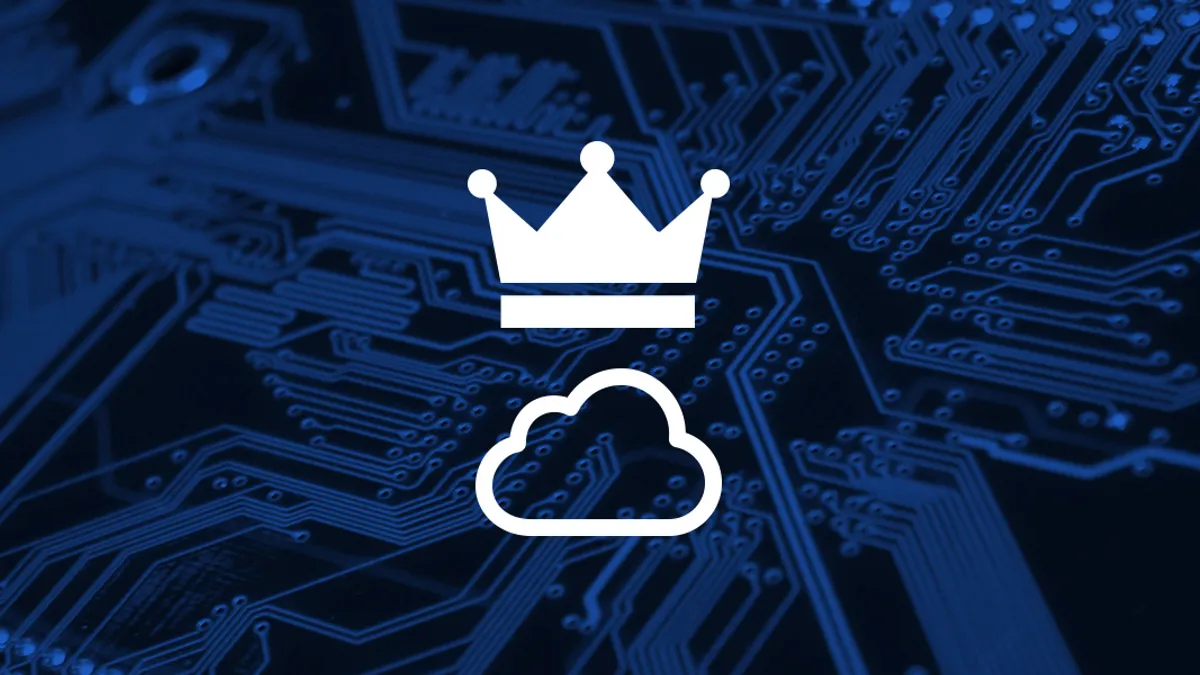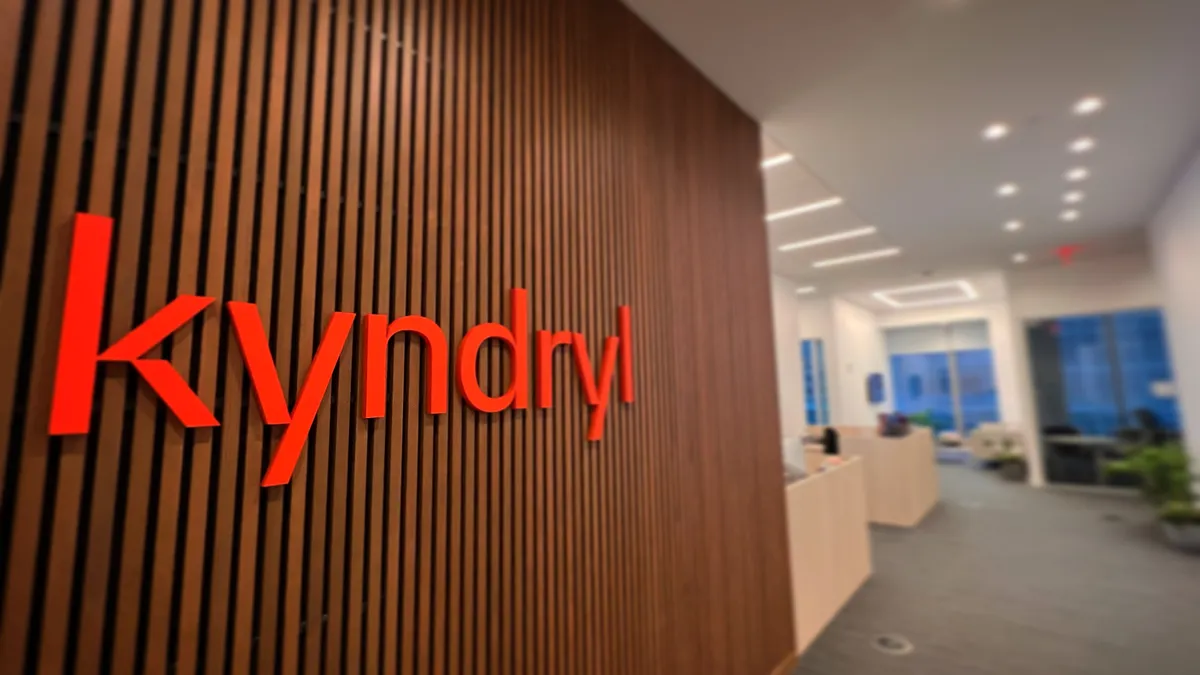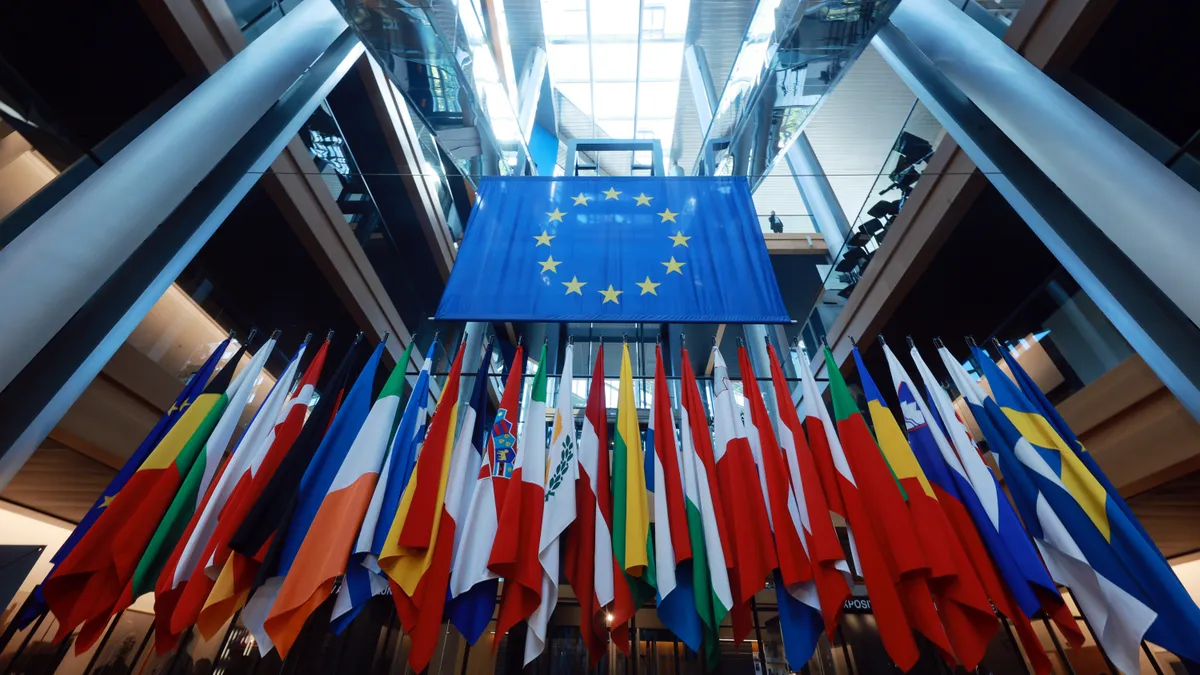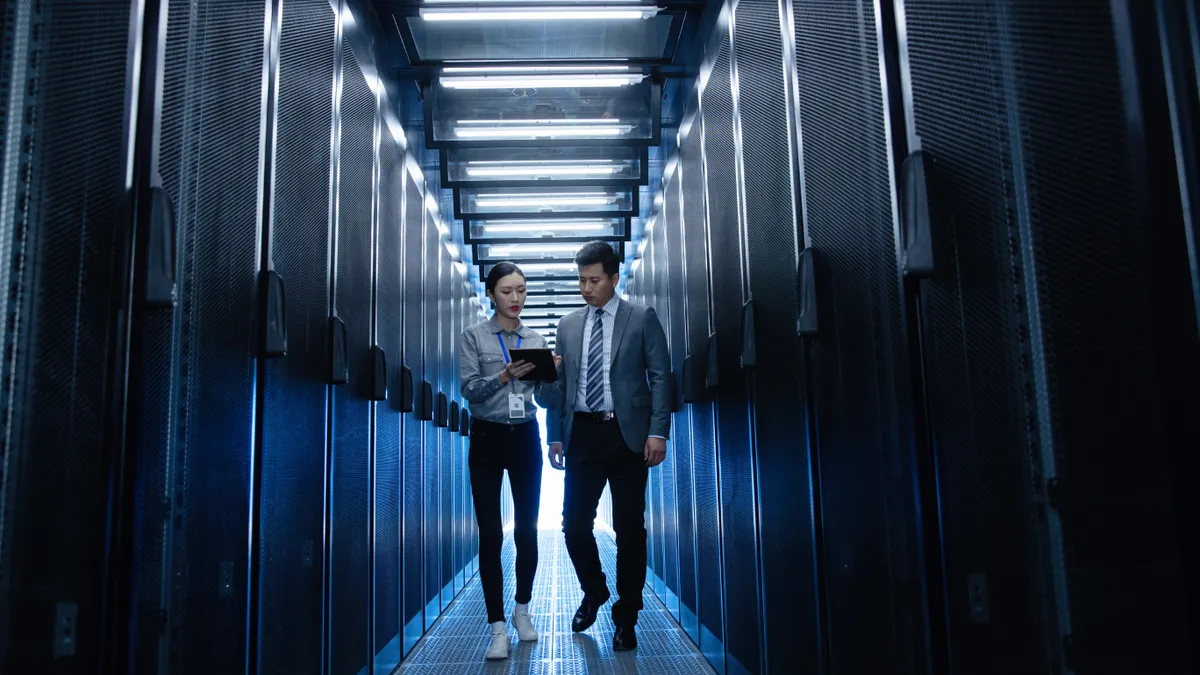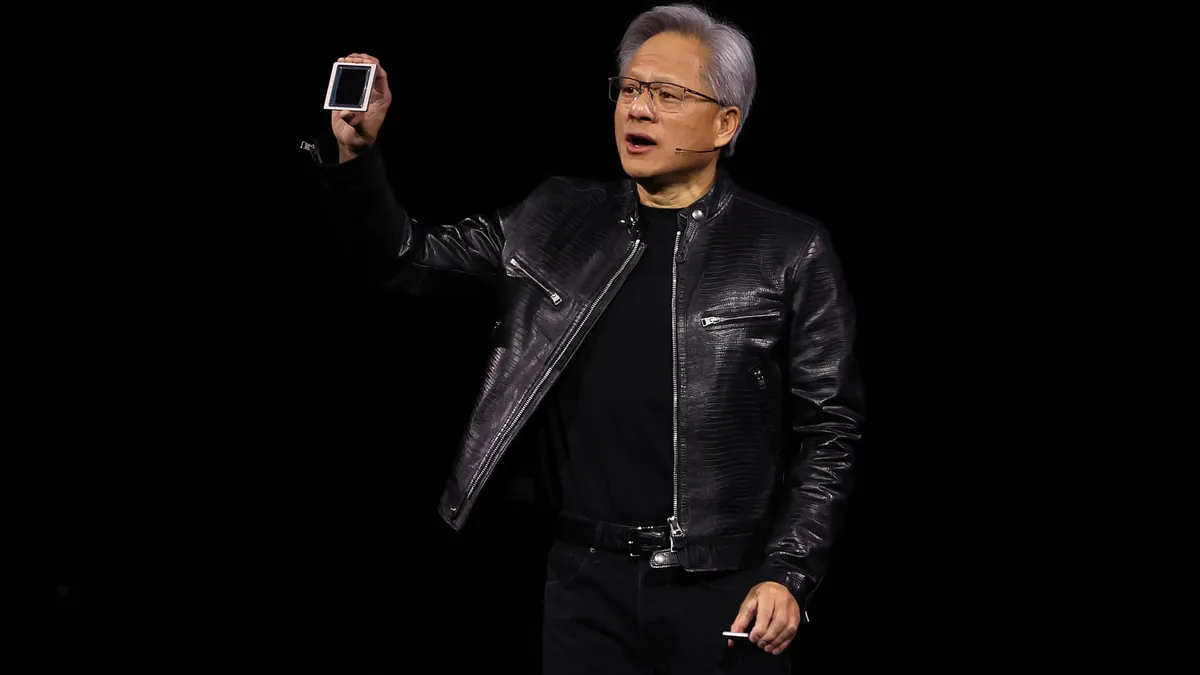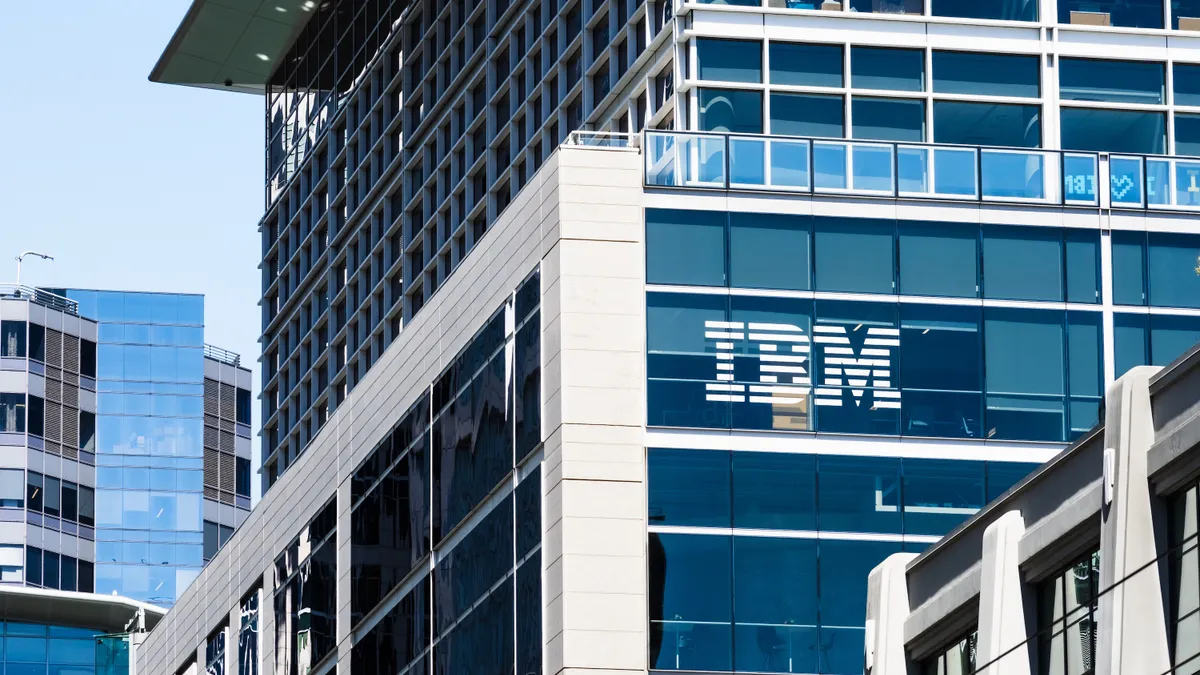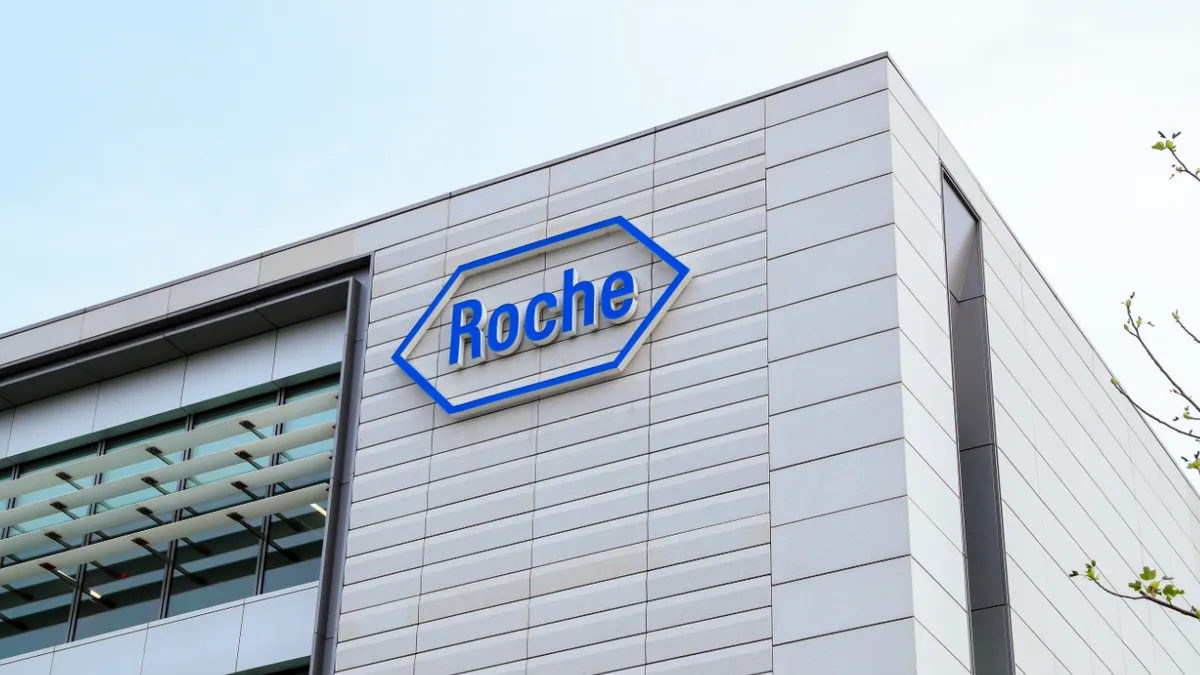Enterprise technology just keeps evolving, and 2016 provided no relief from that rule. CIOs and IT executives are tasked with trying to keep up — and the nature of evolution dictates that some executives do this better than others.
Cybersecurity demands and agile technology are at times contradictory, and the constant call for shifting to the cloud is not easily balanced with constricted IT budgets. But throughout the evolution of IT, there are companies, trends and even threats that have upended the market.
In recognition of that reality, CIO Dive presents its 10 winners of its 2016 Dive Awards. We solicited nominees from readers in August, then consulted industry insiders to help us narrow down the nominees. Ultimately, the award winners were chosen by the editors of CIO Dive.
Here are our winners:
Company of the year
Winner: Amazon Web Services
A subsidiary of e-commerce giant Amazon.com, Amazon Web Services long has proven itself as a trailblazer in cloud computing. Particularly dominant in the Infrastructure as a Service market, AWS was a clear leader in Gartner’s 2016 IaaS magic quadrant, with its offering again ranked ahead of fellow market leader Microsoft Azure and the up-and-coming Google Cloud.
On top of that, in the third quarter of 2016, AWS’ Public IaaS had twice as much market share as the next three companies — Microsoft, Google and IBM — combined. The cloud giant is on track to hit more than $10 billion in revenue this year, which is about four times as much as its closest competitor, Microsoft.
"If it wasn’t for them, I think we’d still be patching and writing crappy code on prem."

Ron Gula
Founder of Tenable Network Security
But the success of AWS, and why we chose it as company of the year, comes from more than just the company’s market dominance. AWS has continued to innovate and create high-stakes partnerships, which keep its service in strong demand with customers. It has changed how client companies roll out applications and helped spark the trend of transitioning business technology to the cloud.
"I think that they really created a whole movement of creating applications in the cloud that are as famous as Uber, but also something where, if I have my own custom applications, I can move it to the cloud and I have all the tools to keep it secure and available," said Ron Gula, founder of Tenable Network Security. "If it wasn't for them, I think we'd still be patching and writing crappy code on prem."
Other nominees: Google, Dell Technologies, Hewlett Packard Enterprise, Cisco.
Executive of the year
Winner: Maya Leibman, executive vice president and chief information officer of American Airlines
In an age where companies have struggled to keep up with the pace of technological innovation, organizations like American Airlines have constantly worked toward a digital future, successfully shifting from a travel-based network platform to a consumer-based technology platform. And while many other major airlines have suffered significant system outages that caused rippling negative effects, AA has remained above the fray.
Much of that success can be attributed to EVP and CIO Maya Leibman, CIO Dive's executive of the year. A long-time AA exec, she was formerly the president of the AAdvantage loyalty program and spearheaded a worldwide CRM rollout for the company.
"She's not an IT person. She's an operating executive who's run a multitude of different business units within American Airlines," said John Parkinson, affiliate partner at Waterstone Management Group. "She's ended up atop the technology pyramid there in a business where you can't run it without technology anymore."
An operating executive who assumed the responsibility for tech at AA, Leibman has successfully navigated sophisticated tech rollouts, Parkinson added. Now, she is working to modernize AA's infrastructure, planning to transition the company's customer website — which has a daily average of 1.2 million visitors — to the cloud, in addition to other applications.
Other nominees: Terry Halvorsen, chief information officer of the U.S. Department of Defense; Mike McNamara, executive vice president, chief information and digital officer at Target Corp.; Thomas Saueressig, chief information officer at SAP; Paula Tolliver, corporate vice president and chief information officer at Intel.
Most disruptive idea of the year
Winner: The growth and evolution of "as a Service" models
These days, almost anything can come "as a Service" in business technology. Take Microsoft's Surface tablets, for example. Earlier this year, the company announced that businesses could lease Surface devices in addition to subscriptions to Office 365 and Windows. Though the idea of leasing hardware might seem peculiar, it is an example of the drastic shift businesses have undergone in how they consume technology and why the growth and evolution of as a Service models is CIO Dive’s most disruptive idea this year.
As a Service "adoption is broadening out and a lot of product folks have gotten as a Service religion."

John Parkinson
Affiliate partner at Waterstone Management Group
As a Service "adoption is broadening out and a lot of product folks have gotten as a Service religion," said Parkinson. Rather than software from a box, providers can now offer cloud-based solutions that require subscriptions, allowing for a constant stream of revenue while better tailoring technology to customer needs.
Companies can have a commitment-less model of technology that is pay-as-you-go in increasingly small units of time, Parkinson said. And soon, the technology will "update in place" without any noticeable interruption for the customer.
Other nominees: Self-taught employees in the enterprise; tools to accurately measure a company's cybersecurity risk; the acceptance of Shadow IT; security baked into solution.
Transformation of the year
Winner: Big banks and the financial sector moving to adopt the cloud
Banks and the financial services sector are mired in legacy technology, relying in many cases on mainframes that are decades old. That is one of the reasons the financial services sector has proven slow in the adoption of more agile cloud technology, particularly because of concern about security and regulatory compliance.
But now, large banks are looking to adopt public cloud services. Researchers from Deutsche Bank found bank IT executives could increase their use of IaaS 30% by 2019. Though it is a slow transition, the sector's change of tune and newly found trust in cloud technology is what makes it CIO Dive's transformation of the year.
Most of what banks have done in the cloud involves test and development software environments, according to Parkinson. The true breakthrough will come when the financial services sector puts financial ERP, data and the "heart of the business" in the cloud.
Other nominees: Hewlett Packard Enterprise's efforts to streamline and scale down offerings; Google's reputation in the enterprise; The exodus of companies from Silicon Valley to other markets; The change in Congress' attitude toward cybersecurity.
Obsession of the year
Winner: Digital transformation
Technology is changing at a rapid pace and companies are struggling to keep up with the permanent state of upgrade. This has led to the rise of digital transformation, CIO Dive's obsession of the year. Companies are now preparing for a digital future, moving away from traditional models of IT.
Digital transformation "isn't something you do and then finish. It is a way of reimagining your organization so it can keep up," said Daniel Newman, principal analyst at Futurum Research, in an email. "It's adapt or die."
CIOs and other IT business execs are now clued into how technology is embedded in product portfolios across business units and there is a constant need for flexibility toward new platforms.
Digital transformation "isn't something you do and then finish. It is a way of reimagining your organization so it can keep up. It's adapt or die."

Daniel Newman
Principal analyst at Futurum Research
Digital transformation has led to the rise of new IT strategies, including bimodal approaches, allowing for both predictable and disruptive IT change in the enterprise.
Other nominees: The cloud wars, ransomware, nation state or state-sponsored malicious actors, the future of the workplace
Company feud of the year
Winner: Apple vs. FBI
For months, the media and government officials obsessed over the FBI's push to make Apple unlock an iPhone used by the one of the San Bernardino attackers. The battle brought up the debate over encryption, privacy and whether technology providers should create backdoors in products to allow for government access. The argument struck a chord with tech companies across the country, and enterprise allies rallied to help Apple fight against a "GovtOs."
CIO Dive’s choice for feud of the year also brought up concerns about an inherent misunderstanding of how companies are using data and what is available on devices people use in their daily lives.
"Society as a whole hasn't grappled what happens when you put all this data all in one spot, who has access to it, when should they have access to it, and so on," said Gula. "People are agreeing to share their data every day, and then they complain when [something] like Ashley Madison gets broken into."
"I am hoping that people will understand a lot more about their digital footprint and what it means and then what role the government could play, or the vendors could play with keeping that secure," he added.
Other nominees: Dell Technologies vs. Hewlett Packard Enterprise; the FTC vs. corporate cybersecurity; Oracle vs. Google; companies vs. cybercriminals
Policy of the year
Winner: The Email Privacy Act
Though the legislation has stalled, many are looking for the Email Privacy Act, or similar legislation, to update the Electronic Communications Privacy Act of 1986. The move would close a loophole that allows for the government to subpoena to get communications if they are more than six months old. The continued reliance on the dated ECPA has shone a spotlight on how more often than not legislation dramatically lags behind technological innovation.
The EPA, however, would upend dated legislation that many law enforcement agencies rely on, benefiting companies across all sectors.
Other nominees: Cybersecurity Information Sharing Act; Privacy Shield; White House code sharing policies across federal agencies; Cyber Incident Response guidelines
Most promising acquisition
Winner: Microsoft and LinkedIn
In June, when Microsoft announced its $26.2 billion acquisition of LinkedIn, it set off a flurry of speculation about what the deal would mean. Experts focused on the enterprise giant's sudden access to the trove of LinkedIn user data, which in some cases sparked concern that it would create an unfair competitive advantage.
The acquisition gives Microsoft "natural market integration" points, as CEO Satya Nadella notes, whether that is for hiring, marketing, training or selling services.
But what makes the acquisition CIO Dive's most promising of the year is how the company will be able to better tailor services to its customer base. LinkedIn is a logical integration point for Microsoft's collaboration platform and allows for an opportunity to increase its presence and user base connection.
Other nominees: Symantec and Blue Coat; Oracle and NetSuite; Dell and EMC; BlackBerry's security acquisitions
Biggest industry threat
Winner: The human factor in cybersecurity
More often than not, poor user behavior is the root cause of many cybersecurity incidents. Whether it's falling for phishing scams or practicing lacking cyber hygiene, end users often pose a threat to an enterprise's security, whether they know it or not.
If companies "don’t patch and if they don’t holistically do cyber hygiene, it might stop one attack but it won’t stop [multiple] attacks."

Ron Gula
Founder of Tenable Network Security
The human factor of cybersecurity and the lack of basic cyber hygiene across enterprises is CIO Dive’s biggest industry threat. In many cases, companies looking to improve practices only look to change one or two cybersecurity shortcomings, according to Gula. "But if they don't patch and if they don’t holistically do cyber hygiene, it might stop one attack but it won't stop [multiple] attacks."
If end users and companies don't ensure practices are improved, more avoidable data breaches will continue to occur.
Other nominees: The aging workforce for legacy systems; the tech talent shortage; inefficient workplace communication; old, dated and inefficient technology
Most promising technology enterprises will want to adopt
Winner: Artificial intelligence and automation
Technology that once seemed like a far-off sci-fi dream is now on the horizon for all enterprises. Artificial intelligence and automation is CIO Dive's most promising technology because it has the ability to reshape entirely how enterprises operate, potentially disrupting the makeup of the workforce and allowing companies to easily tackle complicated problems.
"AI has the power to rapidly manage Big Data, improve customer experience, make cities smarter and IT safer," said Newman. "It takes all the other technologies that we have been focused on and accelerates their capabilities exponentially."
AI is becoming more accessible to companies and is now readily available in a breadth of products. As its adoption continues, it will give rise to more "intelligence" across all parts of business technology.
Other nominees: Password management platforms; containers; blockchain; Big Data analytics platforms
The 2016 Dive Awards were distributed across our twelve vertical markets: BioPharma, CIO, Construction, Education, Food, Healthcare, HR, Marketing, Retail, Supply Chain, Utility, and Waste. Click here to see all of the Dive Awards winners.



